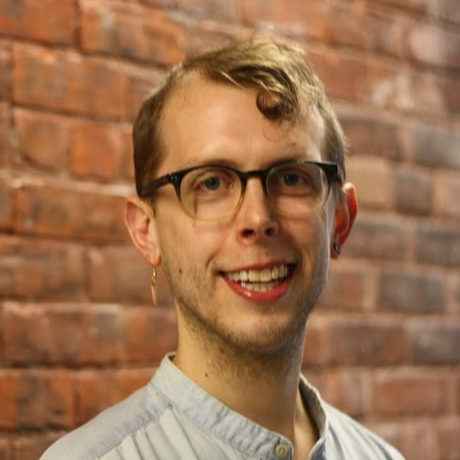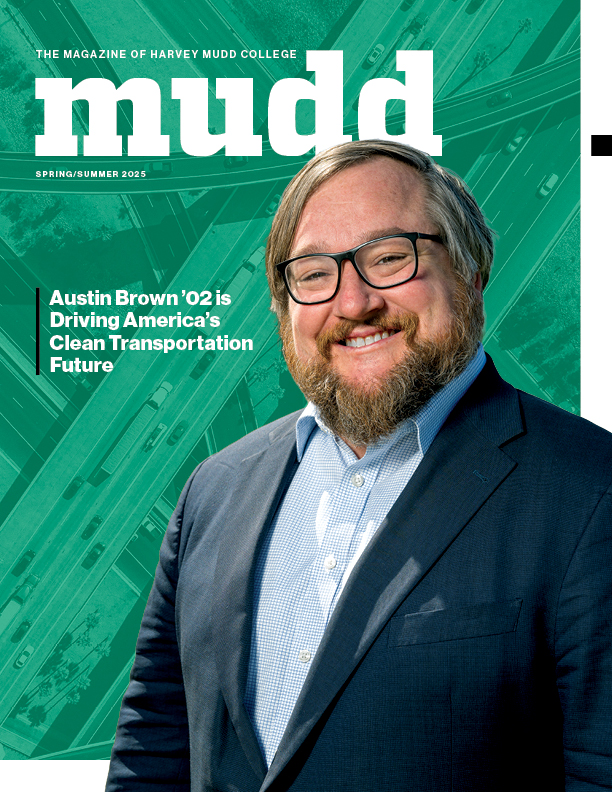Citizen Seitz
November 1, 2017
Harvey Mudd College cultural geography professor David Seitz is celebrating the release of his first book, A House of Prayer for All People: Contesting Citizenship in a Queer Church.
The book is the result of six years of research in which Seitz studied the congregation at the Metropolitan Community Church (MCC) in Toronto, Canada, focusing on debates about race and gender in religious leadership, activism around police-minority relations, outreach to LGBTQ Christians and advocacy for asylum seekers. A small Protestant denomination with global reach, the MCC has a predominantly LGBTQ membership, making it fertile ground for Seitz to examine questions of difference, desire and citizenship and how people form (or don’t form) community through space.
The idea of citizenship in Seitz’s work refers to both the idea of national citizenship and to a more figurative idea of belonging and community. “When broken down to its core elements, citizenship describes a constellation of formal and informal rights, responsibilities, solidarity sympathy, redistribution and a sense of substantive belonging,” Seitz explains. He cites the sanctuary city phenomenon as an example of a practice of citizenship that speaks to local urban and global understandings of citizenship. “Such movements remind us that national citizenship doesn’t have a monopoly on people’s subjective senses of belonging, or on concrete practices of citizenship,” he says.
A House of Prayer deals with struggles over citizenship at multiple geographical scales, for example, church solidarity with LGBTQ refugees to Canada, anti-Black and anti-LGBTQ police brutality on the streets of Toronto and struggles over racism or sexism within the church community. “One key practice of citizenship is to point out the contradiction, the gap, between the promise of access to a modicum of the good life or a community of belonging and experiences of being made small, redundant or, in the case of asylum seekers, made deportable,” Seitz says.
In addition to recognizing what’s broken in communities, Seitz believes that it’s equally important to imagine and offer up better visions for what solidarity and substantive belonging could look like in the church and even on a global scale. “In the book, I showcase the visions of folks within the church, particularly radicals and/or people of color, many of whom in my view do that with particular insight and vision,” he says. “The visions of belonging and solidarity these faith leaders offer up would ask us not to be so seduced by stories about national identity or even LGBTQ identity that we lose sight of the connections and intersections between a wide range of movements for emancipation that are often cast as separate or discrete from one another, but all of which are vital and all of which require a sober analysis of power.”
Seitz joined the Harvey Mudd College faculty this year and has found the atmosphere to be conducive to his work. “One of the neat things about Mudd as a teaching-oriented institution is that I have an incredibly supportive environment in which to experiment pedagogically, which can, in turn, inform research,” he says.
Though he’s moving outside of the church sanctuary for his next research project, one could argue he’ll still be examining citizenship in an area to which many have devoted themselves with religious sincerity. “The course I’m planning for the spring, Star Trek and Social Theory, experiments with pairing episodes of various Star Trek series that address various social crises with key texts in critical theory and cultural studies,” he says.
House of Prayer for All People: Contesting Citizenship in a Queer Church is available from University of Minnesota Press and Amazon.
Book Launch, Feb. 12
An event to celebrate House of Prayer for All People will take place Monday, Feb. 12, 2018 from 2 to 4 p.m. in the Founders Room at Honnold Mudd Library, and will feature reviews of the book by HMC professors Ambereen Dadabhoy and Erika Dyson, as well as Scripps College professor Wendy Cheng.
